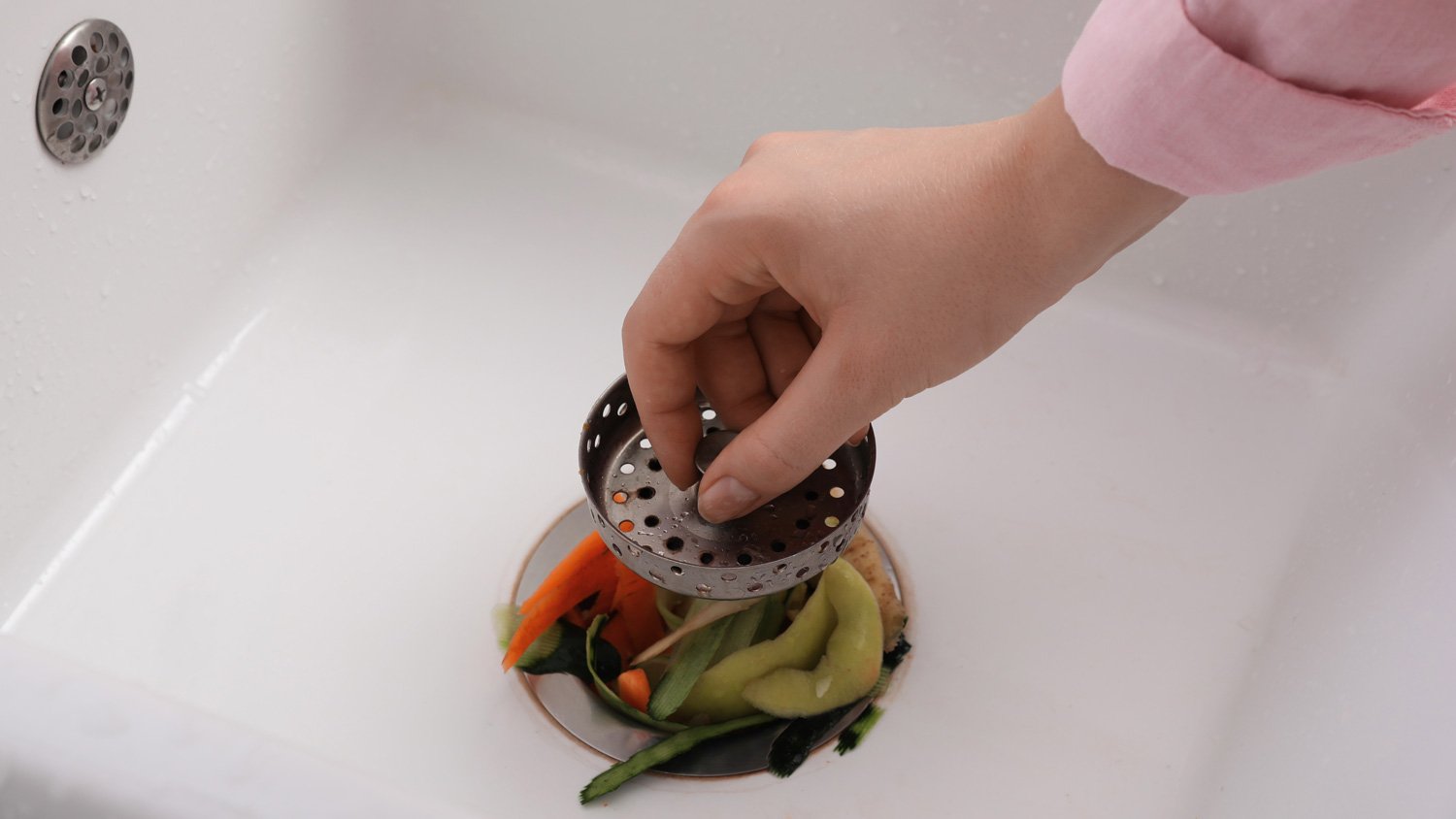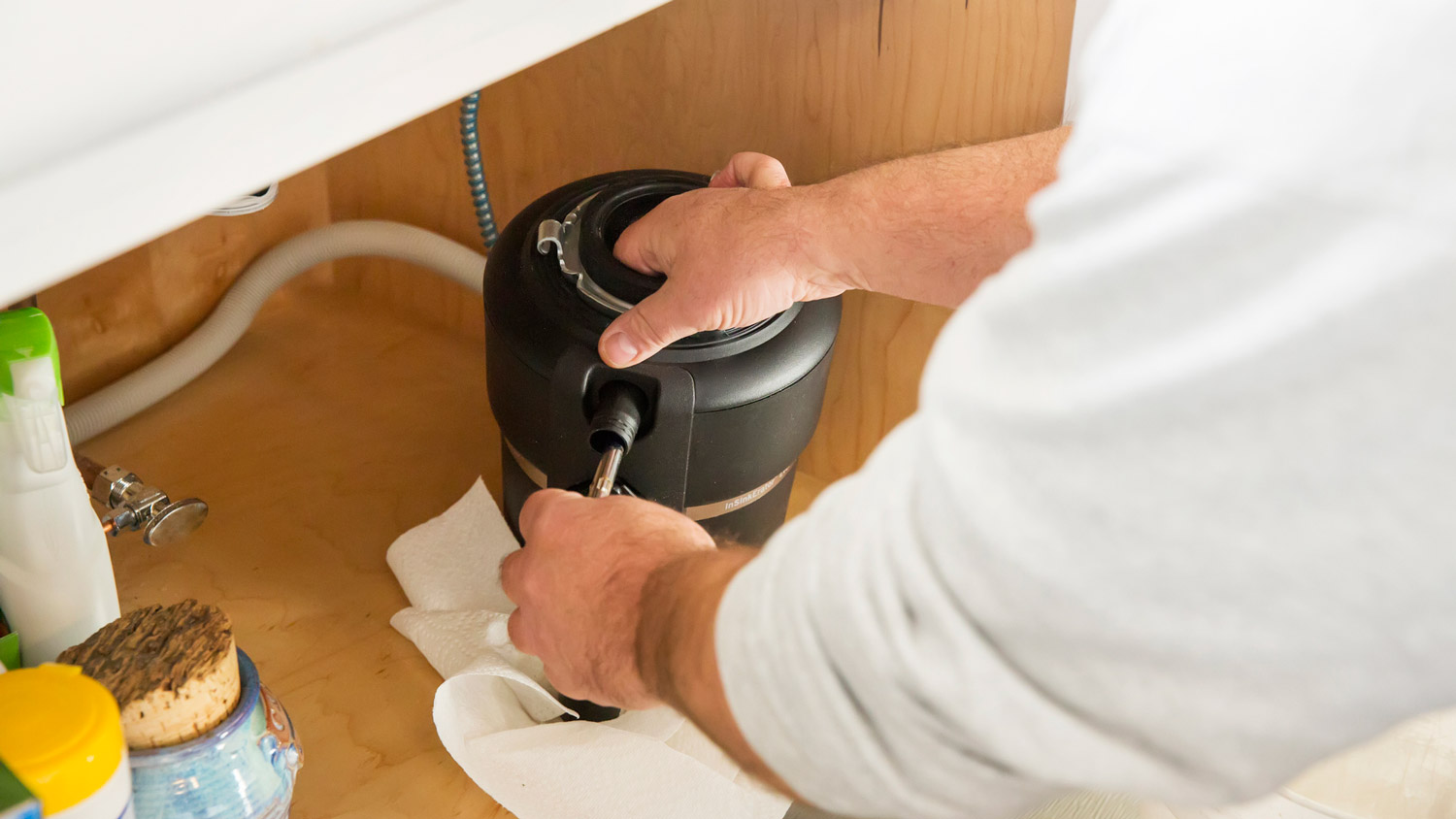9 Maintenance Tips to Keep Your Garbage Disposal on the Grind
The right maintenance can determine whether your garbage disposal sinks or swims


It’s pretty fun to go on a power trip and watch your garbage disposal destroy whatever you shove down there. Be careful, though—going too hard might send its lifespan down the drain. To get the most out of your disposal, follow these nine tips for preventative maintenance.
1. Only Put Food Through Your Garbage Disposal
Don’t take the word “garbage” too literally; your disposal should break down food waste, not act as a makeshift trash can. Broken glass, paper towels, produce stickers, photos of your ex—these are all out of the question. No matter how tempting it is to obliterate these items, opt for tossing them in the trash can.
2. Always Use a Steady Stream of Cold Water
It’s extremely important to never operate your garbage disposal without running water—and cold should be your go-to temperature. Cool temperatures will help solidify any fats or grease, allowing it all to run smoothly through the pipes.
3. Avoid Putting Hard or Fibrous Foods Down the Disposal
There are many things you shouldn’t put down your disposal, including hard and fibrous food waste. Here are the biggest no-nos:
Celery
Rhubarb
Broccoli
Artichokes
Greens such as kale, lettuce, and chard
Fruit pits
Nuts
Eggshells
Cornhusks
Bones
Seafood shells
Many of these can go in your compost pile (aside from the meat products). Everything else can go right in the trash or into a soup pot.
4. Don’t Put Too Much in at Once

Your trusty garbage disposal works wonderfully alongside your dishwasher, as it can grind up food scraps that would otherwise cause a clog. Still, you shouldn’t shove all your kids’ untouched veggies in at once. To maximize the lifespan of your disposal, stick with small, manageable loads. Chop up any large pieces as necessary or toss them in the trash.
5. Keep (Most) Skins and Peels Out
Avoid putting peels or skins from apples, bananas, potatoes, onions, etc. down your disposal. These tend to form an icky sink-clogging goo rather than getting disposed of properly. The exception here is citrus peels from lemons and oranges. Grinding small pieces of these can freshen up your garbage disposal (though commercial garbage disposal cleaners are far more effective).
6. Don’t Attempt to Tackle Clogs With Hot Water
Hot water can dissolve sticky residue and melt greasy messes, so you’d think it would power through whatever gunk is clogging your garbage disposal. However, this isn’t the case. The heat will melt fats and grease, leaving you with an even bigger mess once they re-solidify.
7. Never Fish Out Objects or Clogs With Your Hands
It’s tempting to grab your pickle fork when you can see it down there, but you should never use your hands. Even if your disposal isn’t activated, it’s still sharp and can easily cut you. What’s worse, dislodging a clog can spring the disposal into action, so you definitely won’t want your hand in there if that happens. Instead, make sure the power source is shut off at the breaker and use tongs or pliers to grab whatever is stuck.
8. Clean Your Kitchen Garbage Disposal Regularly
Cleaning your disposal regularly will help prevent buildup and clog-causing residue. As mentioned before, chopped-up citrus peels from lemons and oranges can act as a quick way to freshen things up, but they won’t do anything to clear any lingering sludge. To effectively clean your disposal, look for commercial cleaners specifically meant for garbage disposals. Skip harsh drain-cleaning chemicals, as these can damage the unit’s parts.
9. Know When to Repair vs. Replace

Deciding whether to repair or replace your disposal can be tricky—but there are a few key death rattles to look for. Basic garbage disposal troubleshooting can help you get to the bottom of the issue, though some problems will call for a professional. A trusted plumber near you or a local handyperson can help determine whether yours is beyond saving and facilitate garbage disposal repair and replacement.





- Gas Plumbers
- Plumbing Repairs
- Sump Pump Installation
- Wood & Pellet Stove Repair
- Shower Repair
- Wood Stove Services
- Emergency Plumbers
- Fire Sprinkler Contractors
- Perc Test Companies
- Toilet Repair & Installation
- Boiler Repair
- Sewer Line Repair
- Faucet Repair
- Main Drain Camera Companies
- Foundation Drain Installation
- French Drains
- Bathtub Replacement
- Subcontractors
- Storm Drain Contractors
- Affordable Plumbing
- Plumbing & Heating Companies
- Bathroom Repair Services
- Sink Installation
- Commercial Plumber
- Barndominium Builders
- Water Line Repair
- Faucet Installation
- Water Line Installation
- Leak Detection










